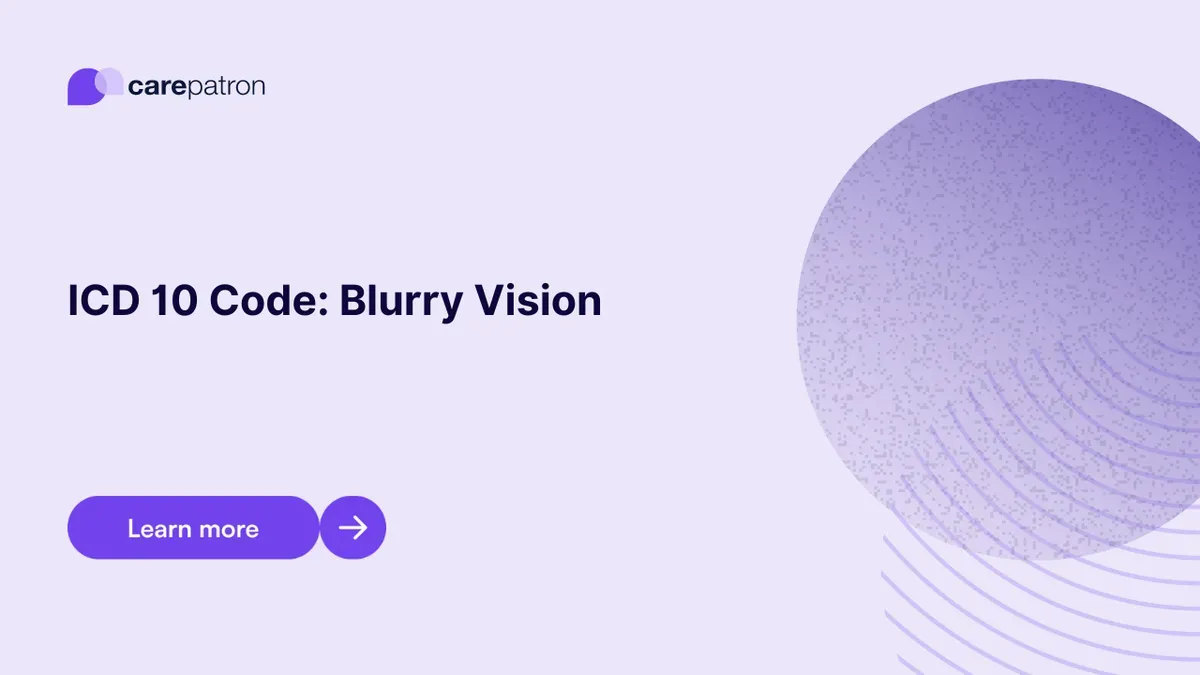
Blurry Vision ICD-10-CM Codes
Read this short guide to learn about Blurry Vision ICD codes you can use.
Use Code
Commonly asked questions
If blurry vision is caused by a refractive problem like Astigmatism, Farsightedness, or Nearsightedness, wearing eyeglasses, putting on contact lenses, or getting eye surgery can correct it.
Examples of problems that can cause blurry vision to occur out of the blue include having a stroke, sustaining a concussion, the detachment of the retina, an eye infection, an eye injury, and something as simple as a migraine.
Blurry Vision is commonly used to refer to vision that is out of focus. Cloud vision means you can’t see clearly because it feels like you’re looking through a cloud, fog, or haze. Even adjusting your focus won’t do anything if your vision is cloudy.
EHR and practice management software
Get started for free
*No credit card required
Free
$0/usd
Unlimited clients
Telehealth
1GB of storage
Client portal text
Automated billing and online payments
